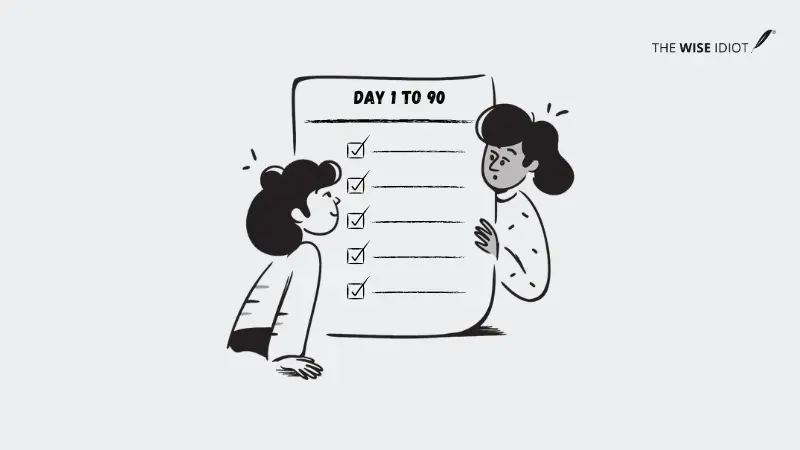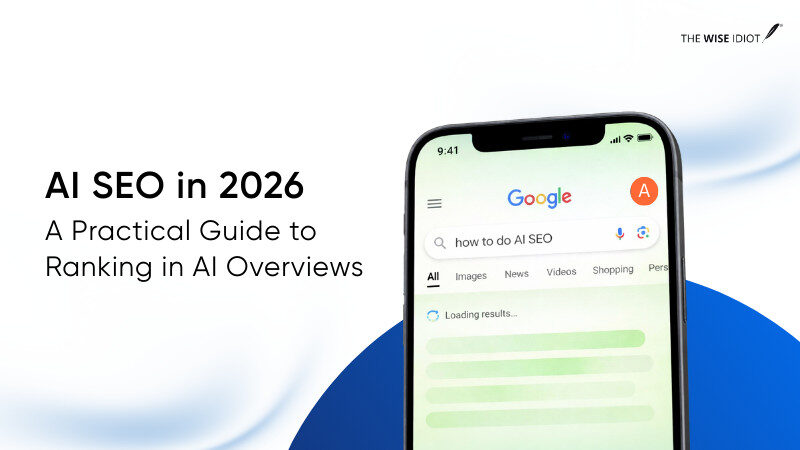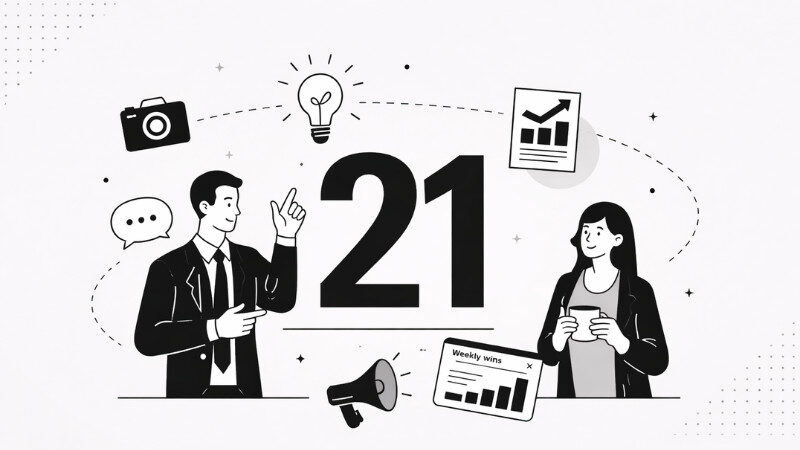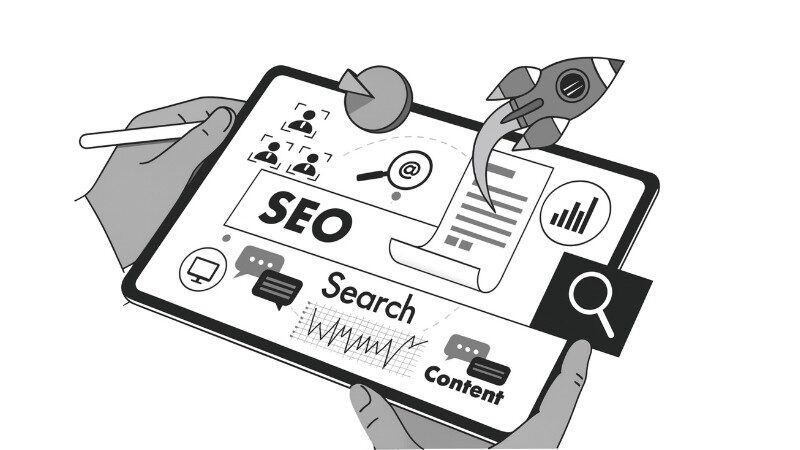Do you remember the excitement of summer vacations as a child? Those long, carefree days filled with new experiences and adventures, each year bringing new activities and friends. One day, you were a dancer, the next a skater, and then perhaps taking acting classes. Each summer camp was an opportunity to learn, grow, and connect.
This nostalgic feeling of discovery and growth can be harnessed when marketing your business. Just as we embraced new experiences in our summer camps, it’s vital to approach marketing with a sense of curiosity and openness to learning.
The first few days and months of marketing efforts are crucial as they lay the foundation for the organic growth of your business. Just as we explored various activities and built lasting friendships at summer camp, it’s important to experiment with different marketing strategies, create meaningful connections with your audience, and adapt based on your findings.
Approach your marketing journey with the same enthusiasm and wonder as those memorable summer days. Embrace the process of learning, iterating, and refining your strategies. By doing so, you’ll not only foster the organic growth of your business but also rekindle the joy of discovery and connection that made those summer camps so special.
Now, let’s dive into the framework you can follow in the first 90 days of your content marketing strategy:
Table of Contents
ToggleDay 1 to 30: Define your goals and audience
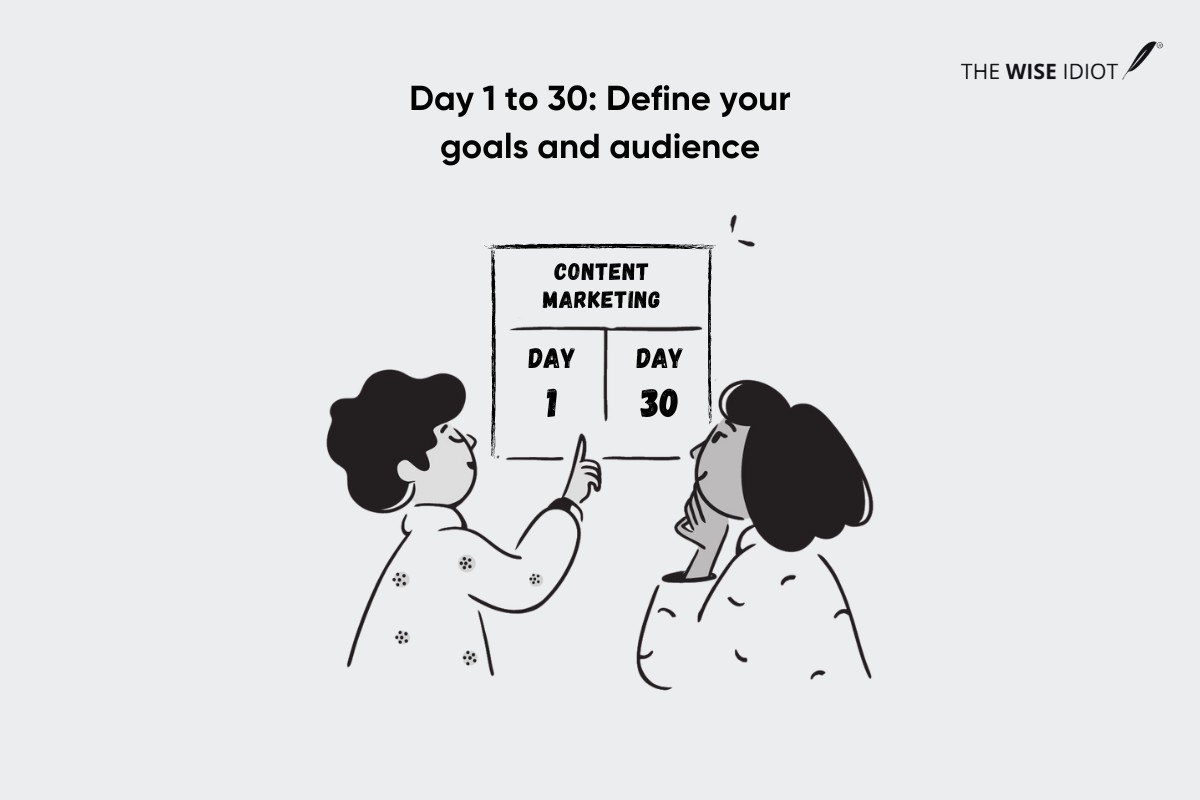
Imagine embarking on a journey without a destination or map. It’s easy to feel lost, unsure of where you’re going or how to get there. The same can be said for creating a content marketing strategy without defining your goals.
Before setting out on your marketing journey, defining your goals is crucial. What are you trying to achieve with your content marketing strategy? Are you looking to generate leads, increase brand awareness, or establish thought leadership in your industry? With a SMART goal approach, you can take specific actions to measure and track your progress toward achieving your goal.
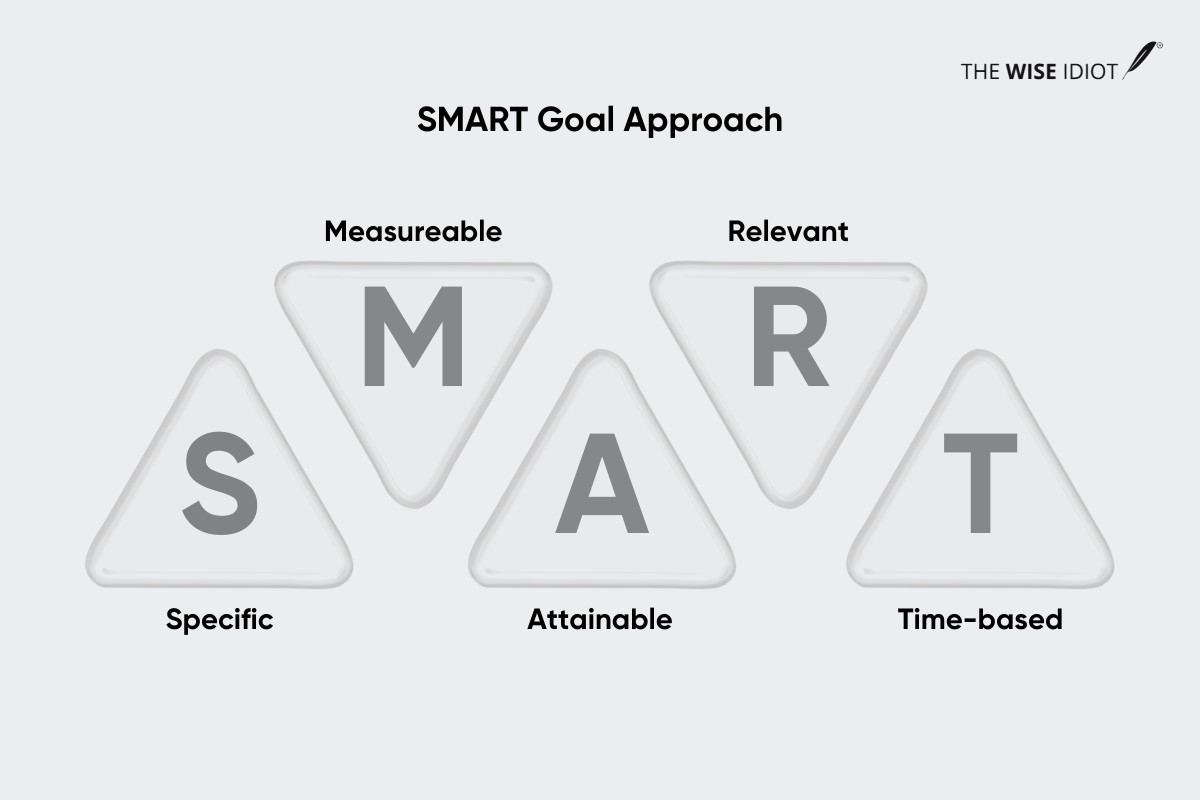
Once you have established your goals, you need to identify your target audience. Who are your ideal customers? What are their pain points and needs? What are their demographics (age, gender, income, education, etc.)? Using the answers to these questions, you can understand your audience and create content that resonates with them and provides value.
To understand your audience, a buyer persona can be your magnifying glass. It helps you zoom in on your target audience’s specific traits, preferences, and behaviours, allowing you to create content tailored to their needs.
For instance, let’s say you are the owner of a fintech startup that offers a mobile payment app for small businesses. To create a buyer persona, you might start by asking yourself questions like:
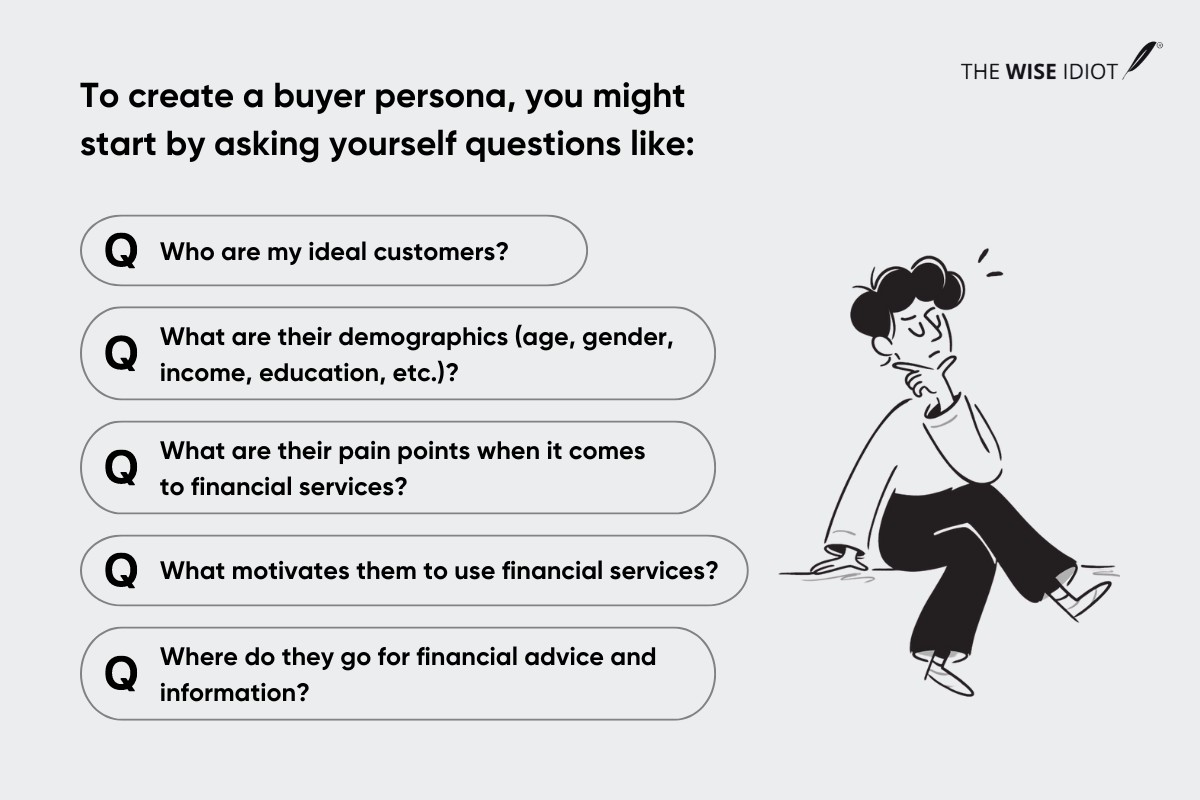
- Who are my ideal customers?
- What are their demographics (age, gender, income, education, etc.)?
- What are their pain points when it comes to financial services?
- What motivates them to use financial services?
- Where do they go for financial advice and information?
You can develop a detailed buyer persona that represents your ideal customer using the answers to these questions. To create a buyer persona, you may start by collecting data on small business owners who have already downloaded your app. Many of these customers are tech-savvy entrepreneurs who value convenience and efficiency in their day-to-day operations.
Using this information, you can develop a buyer persona named “Ava”, who is a small business owner in her mid-30s, has an annual income of $75,000, and is always looking for ways to streamline his business operations.
Here is an example of the buyer persona of a SaaS company:
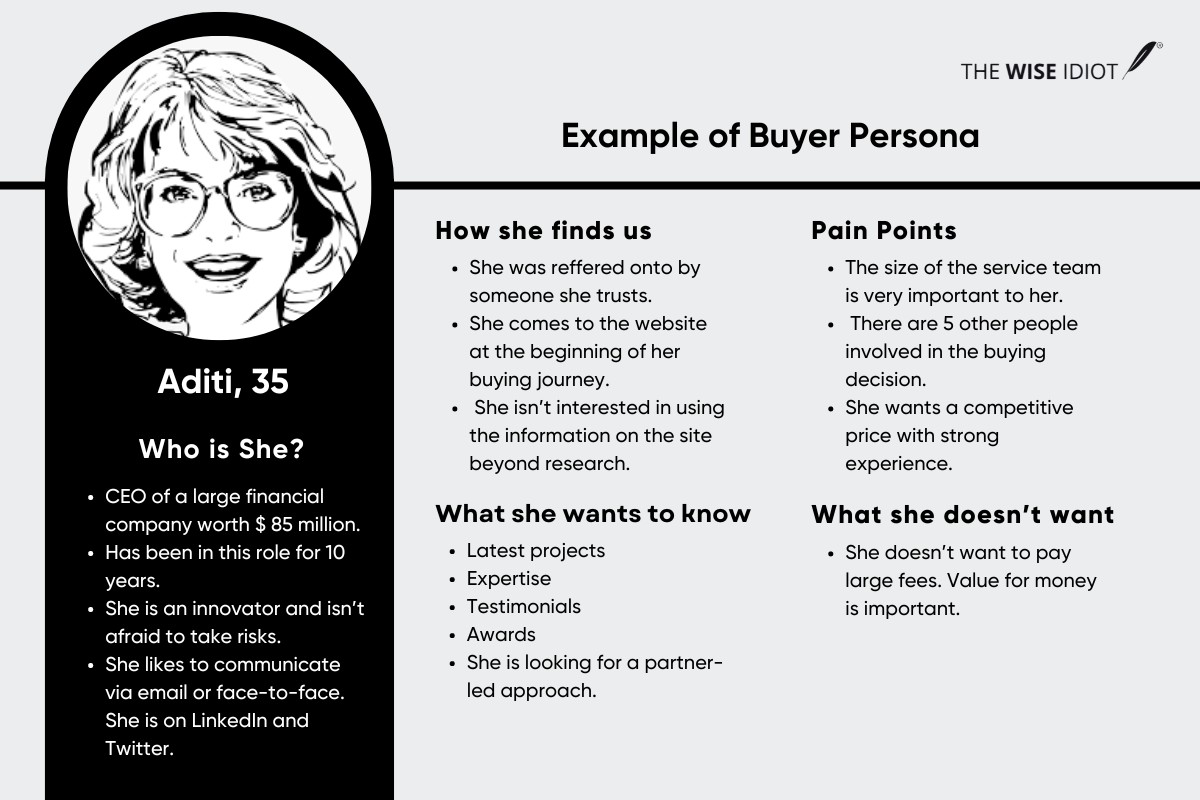
Day 30 to 60: Develop a Content Plan and Create a Content Calendar
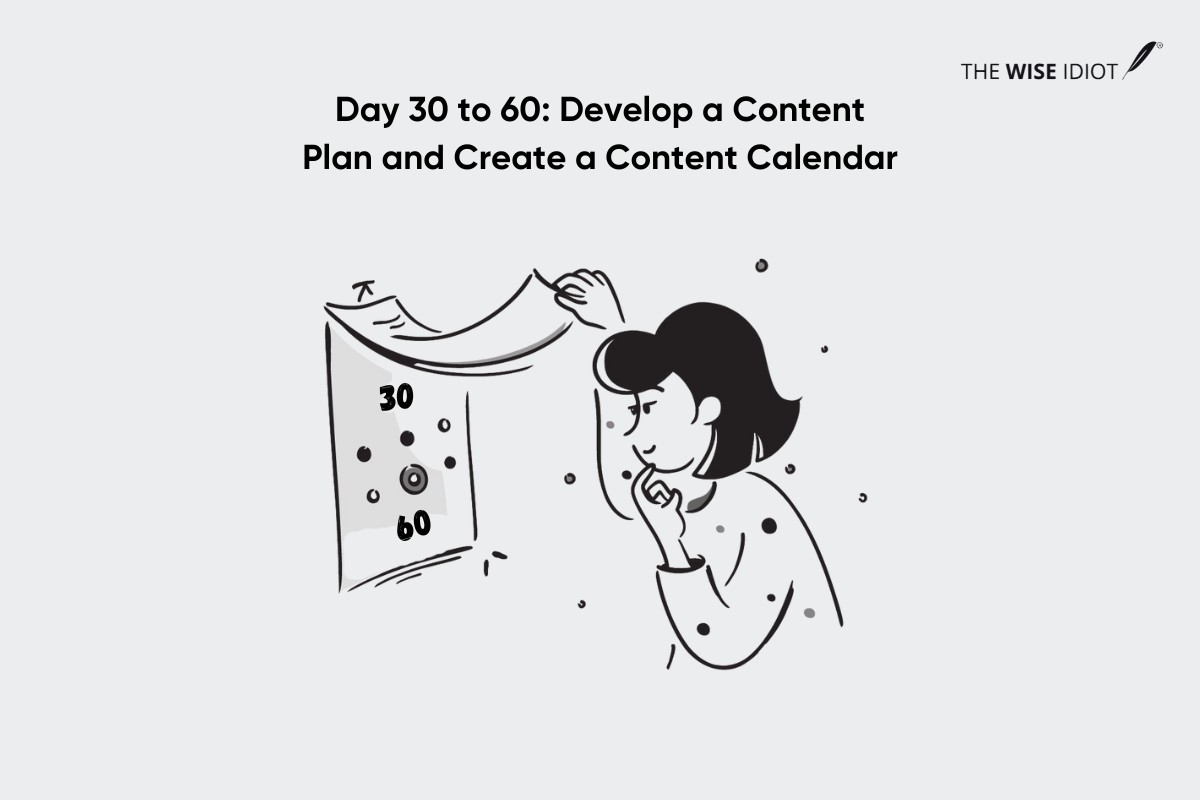
With your goals and audience in mind, it is time to develop a content plan. Developing a content plan for your content marketing strategy is like planning a road trip. Just as a well-planned road trip can save time and money and avoid unexpected detours, a well-thought-out content plan can help you reach your marketing goals and avoid wasted efforts.
According to the Content Marketing Institute, companies that document their content strategy are 538% more likely to be successful in their content marketing efforts than those that don’t. This underscores the importance of having a content plan in place.
Without a content plan, you may find yourself creating content that doesn’t resonate with your target audience, lacks direction and purpose, or fails to address your customers’ needs and pain points. This can result in:
- Low engagement rates
- Poor conversion rates
- Low return on investment (ROI)
So, How do you create your effective content marketing roadmap? Here are the following steps to create a content calendar:
- Include basic elements: Start by including basic things like publish date / due date/assignee. This helps you organise things under one roof.
- Add progress tab: It’s easy to confuse between the finished and ongoing tasks without a clear differentiation line. So, add a progress column including the items such as published, WIP, Stuck, and pending approval.
- Decide the frequency: Define how often you want to publish new content. The frequency depends on your specific needs. For instance, you can post 2X a day from your social media page, whereas for your blog, the frequency can be 2X-3X a week.
Once your roadmap is ready, a top content marketing agency (like The Wise Idiot) can help you reach your destination with the proper content framework.
Day 60 to 90: Measure and Analyse Your Results
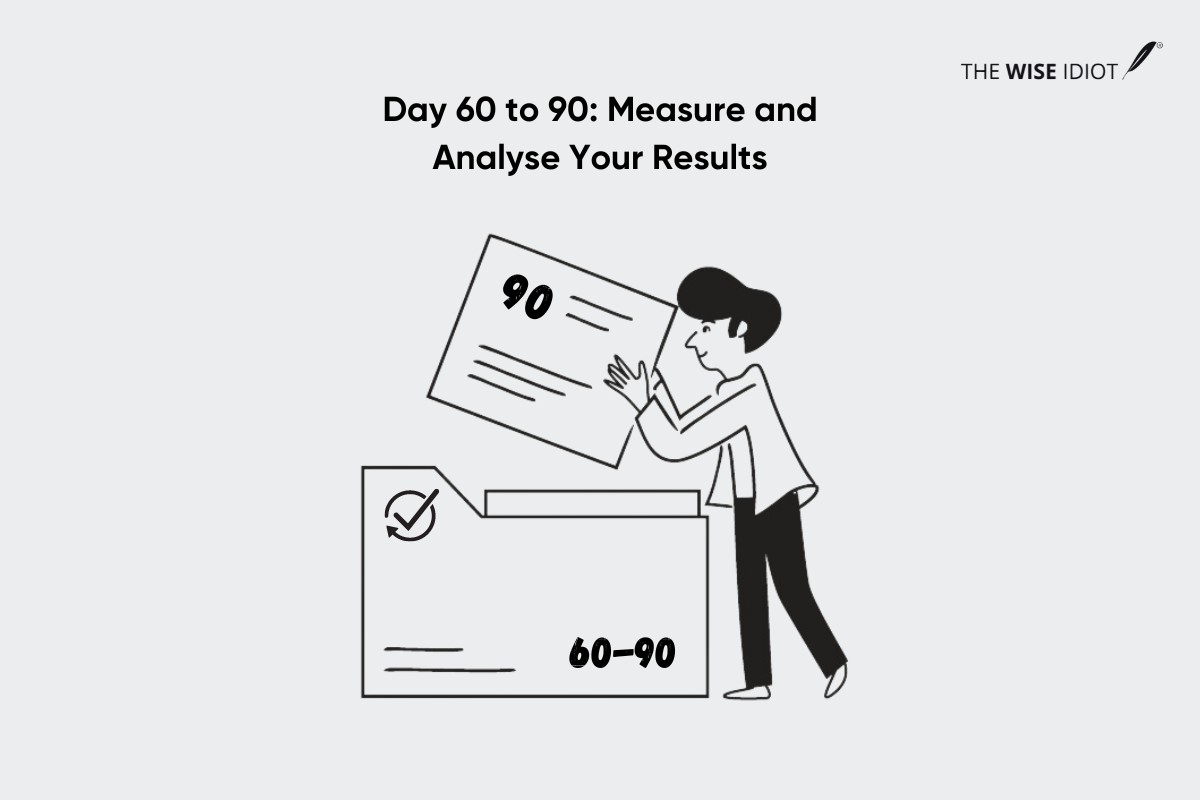
Measuring and analysing your results is critical to improving your content marketing strategy. It’s like checking your GPS during a road trip to ensure you’re still on track and making adjustments if needed. Without measuring and analysing your results, you won’t know whether your content is resonating with your audience or if you’re achieving your marketing goals.
To measure and analyse your results effectively, you can follow these tips:
- Define your key performance indicators (KPIs): Identify the metrics that matter most to your business, such as website traffic, engagement rates, lead generation, or sales.
- Use analytics tools: Utilise tools like Google Analytics, Google Search Console, SEMrush, or HubSpot to track and analyse your KPIs.
- Set benchmarks: Establish benchmarks for your KPIs based on your past performance or industry standards to evaluate your progress.
- Regularly monitor and adjust: Monitor your results regularly and adjust your content strategy as needed to improve your performance.
Factors to Consider for the First 90 Days of Content Strategy
Creating a successful content marketing strategy for the first 90 days requires careful planning and prioritisation. Here are some aspects that might help you in before starting with your content marketing strategy:
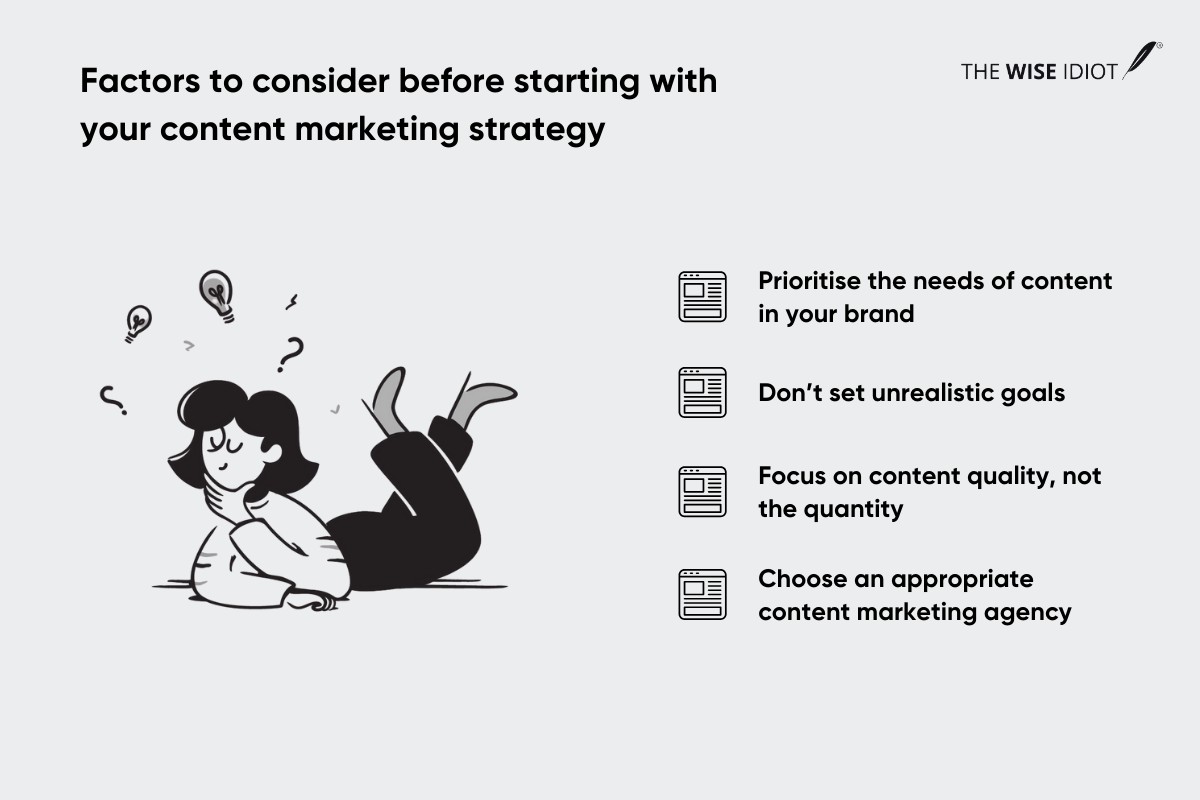
Prioritise the needs of content in your brand
Many business owners believe that creating top-of-funnel content should be the initial focus. However, in a product-led growth startup, where the product itself drives customer acquisition, the focus should be on creating activation content such as product guides.
On the other hand, if you sell to enterprise companies, the primary role of content might be to support the sales process or build employer branding. Therefore, instead of starting with an SEO plan right away, it’s important to understand your brand’s content needs by taking time to evaluate your business and target audience.
Don’t set unrealistic goals
Setting unrealistic goals for a content marketing strategy can be a common mistake for business owners who are new to this approach. It’s important to remember that content marketing is a long-term strategy that requires consistent effort and patience.
Business owners who expect immediate results or try to achieve too much too quickly may end up disappointed and frustrated with their efforts. It is crucial to set realistic goals and understand that it takes time to see the benefits of a well-executed content marketing strategy.
Focus on content quality, not the quantity
Many business owners often believe that the more content they produce, the better their chances of success. However, this approach can lead to a decrease in the quality of the content, resulting in an ineffective content marketing strategy. Producing high-quality content that engages and educates your target audience is essential.
Business owners sometimes struggle to create compelling content due to lacking resources or expertise. In such cases, investing in creating fewer but higher-quality content pieces that can resonate with your audience and provide value to them is better.
Choose an appropriate content marketing agency
In-house content marketing teams can struggle to keep up with the demands of consistently creating high-quality content. Outsourcing to a content marketing agency can be a great solution. However, it’s crucial to choose an appropriate agency that can meet your long-term content marketing requirements.
Look for a content marketing agency that understands your brand’s unique needs and can provide a customised approach. The agency should have a proven track record of delivering quality content and achieving measurable results for their clients. The right content marketing agency ensures that your content strategy is well-executed and aligned with your long-term goals.
Are you ready for the rollercoaster ride?
Yes! You heard right; the first 90 days of your content marketing strategy can be a rollercoaster ride with a mix of excitement, challenges, and learning opportunities. To make the most of this time, it’s important to have a well-planned and flexible approach.
But even with the best intentions, creating and executing a content marketing strategy can be overwhelming. That’s where a trusted content marketing agency like The Wise Idiot can help.
At The Wise Idiot, we specialise in creating customised and effective content marketing strategies for businesses of all sizes. With us, you can confidently navigate content marketing challenges, knowing that you have a team dedicated to your success.
Get in touch with us today to learn how we can help take your content marketing to the next level!
Frequently Asked Questions
Q1. What is the first step in your content marketing strategy?
Ans: Know your goals and audience. Before creating content, define what you want to achieve (brand awareness, sales, etc.) and who you’re targeting. This guides everything from content type to promotion.
Q2. What makes a successful content strategy?
Ans: Focus, value, and consistency. A winning strategy has a clear focus on a target audience and their needs. It delivers valuable content that resonates, and maintains consistent publishing to keep the audience engaged.

